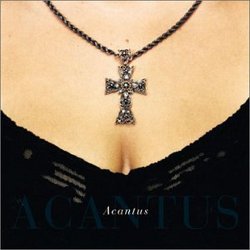Very Good
Percy Smogg | Tulsa, OK USA | 01/03/2002
(4 out of 5 stars)
"The primary singers here are two women who use a vibrato-free, strong, chesty tone that works well for this music. They are joined on occasion by one of the male instrumentalists, and I think there might have been a little use (just a little) of the multi-track recording device to cause the female vocalists to sprout a twin sister at strategic points here and there. This recording departs from other early religious music recordings in that this is "peasant" music rather than "high church" music. Consequently, the form of the music is simple when compared to its high church counterpart. If you are looking for one of those recordings of masterful motets, this isn't it. Even though the simplicity of the music presents the risk of a boring recording, the performers do a good job of keeping boredom at bay. I must admit, toward the end of the recording, it wouldn't have hurt to have a complex piece or two to spice things up, but that would have been at odds with the theme of this recording. Given the quality of the recording, it's a shame this is the only recording by the group (that I can find). I think fans of early music should consider this an essential recording to have, but I would probably restrict my recommendation to those fans only. By the way, if I recall correctly, I believe Grammophone magazine (or was it Fanfare?) gave this a high rating too; that's what drew my attention to it."
Fresh sounds from Medieval polyphony
B. Marold | Bethlehem, PA United States | 11/17/2005
(5 out of 5 stars)
"'Acantus', the album and group name presents Italian medieval liturgical music with a distinct sound which sets it apart from most other medieval music I have heard.
I am not an expert on music, let alone medieval polyphony, although I listen to a lot of old music and there is a tendency for it to all run together and sound the same.
On this recording, there is a distinctly Mediterranean tenor to the vocals. I will not go so far as to say I would immediately recognize this music as originating in Italy, but I would identify it to being from either Italy or Spain rather than from France, Germany, or England.
Some pieces also have an unusual and primative form of percussion I have heard no where else.
If you like early music, this album is a very pleasant change."


 Track Listings (17) - Disc #1
Track Listings (17) - Disc #1